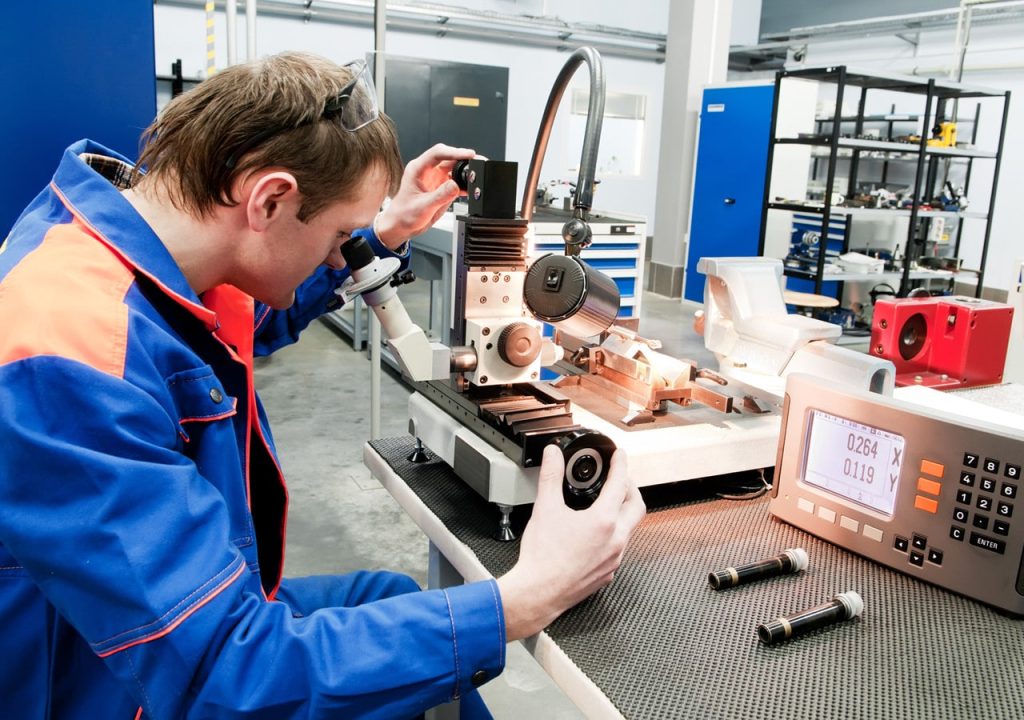Understanding the Importance of First Article Inspection

Maintaining stringent quality control is of utmost importance in the manufacturing world. This is where the First Article Inspection (FAI) comes into play. Acting as a systematic and comprehensive validation process, FAI meticulously verifies that the initial product of the production process aligns seamlessly with the defined specifications. As an integral component of quality control measures, understanding the role of the initial production check becomes incredibly critical. It acts as a confidence builder, validating that the production processes and systems in place can deliver a product that perfectly aligns with the design blueprint. Moreover, it acts as a tool to detect and rectify potential flaws in the early stages, preventing issues from becoming too costly or time-consuming to address later on.
What Is an Initial Production Check?
Delving deeper into its definition, the initial production check is a detailed examination conducted on the first product of the production cycle. Its primary role is to validate the capability of a manufacturing process to produce a product that adheres to every design specification. This process becomes even more critical for industries where safety, reliability, and quality are paramount, such as aerospace, automotive, and medical devices. The initial production check involves a thorough analysis of the product’s physical attributes, an assessment of its functionality, and a comprehensive review of all related documentation. The detailed nature of the initial production check ensures the consistency of the production process, reinforcing that it can reliably yield products that meet all specified requirements.
Why Is an Initial Production Check Critical?
The significance of the initial production check in manufacturing cannot be overstated. It provides a practical avenue for manufacturers to identify potential problems at the earliest stages of production. This early detection saves invaluable resources, time, and efforts that might be expended later if such issues are not addressed promptly. More importantly, it confirms that the final product meets all design and performance requirements, which is critical to customer satisfaction. The initial production check significantly enhances the manufacturer’s credibility as a trusted supplier by affirming the product’s adherence to quality and reliability standards.
When Is an Initial Production Check Required?
The initial production check is typically required prior to the commencement of mass production. However, other circumstances may also necessitate an initial production check, including design modifications, changes in manufacturing methods or materials, changes in manufacturing source or location, and any resumption of production after a hiatus. These changes could potentially impact the final product’s form, fit, or functionality. Therefore, it’s imperative to ascertain that these alterations haven’t inadvertently influenced the product’s conformity with the required specifications.
How Is an Initial Production Check Conducted?
The procedure for conducting an initial production check is highly intricate. It requires a detailed cross-examination of the product against its design drawings, utilizing precise measurement tools to ensure it fulfills all dimensional requirements. It also necessitates a meticulous review of the product’s material and process certifications to confirm that the right materials and manufacturing processes have been utilized. Certain industries may also demand performance testing to ensure the product operates as expected. The results of these checks are then documented in a First Article Inspection Report (FAIR). The FAIR provides a concrete record of the inspection process, forming a critical part of the product’s manufacturing history.
Conclusion:
First Article Inspection serves an indispensable function in the manufacturing process. It forms a critical checkpoint that assures alignment of the product with its design specifications and ensures its functionality. By enhancing customer satisfaction and boosting the manufacturer’s reputation for delivering high-quality and reliable products, the FAI stands as a testament to the company’s commitment to quality and precision.





